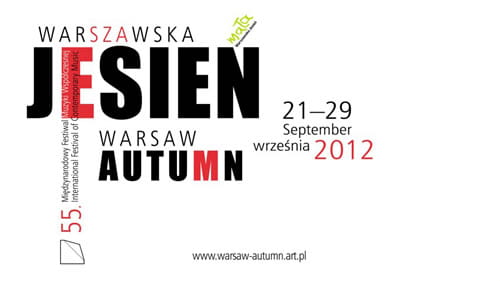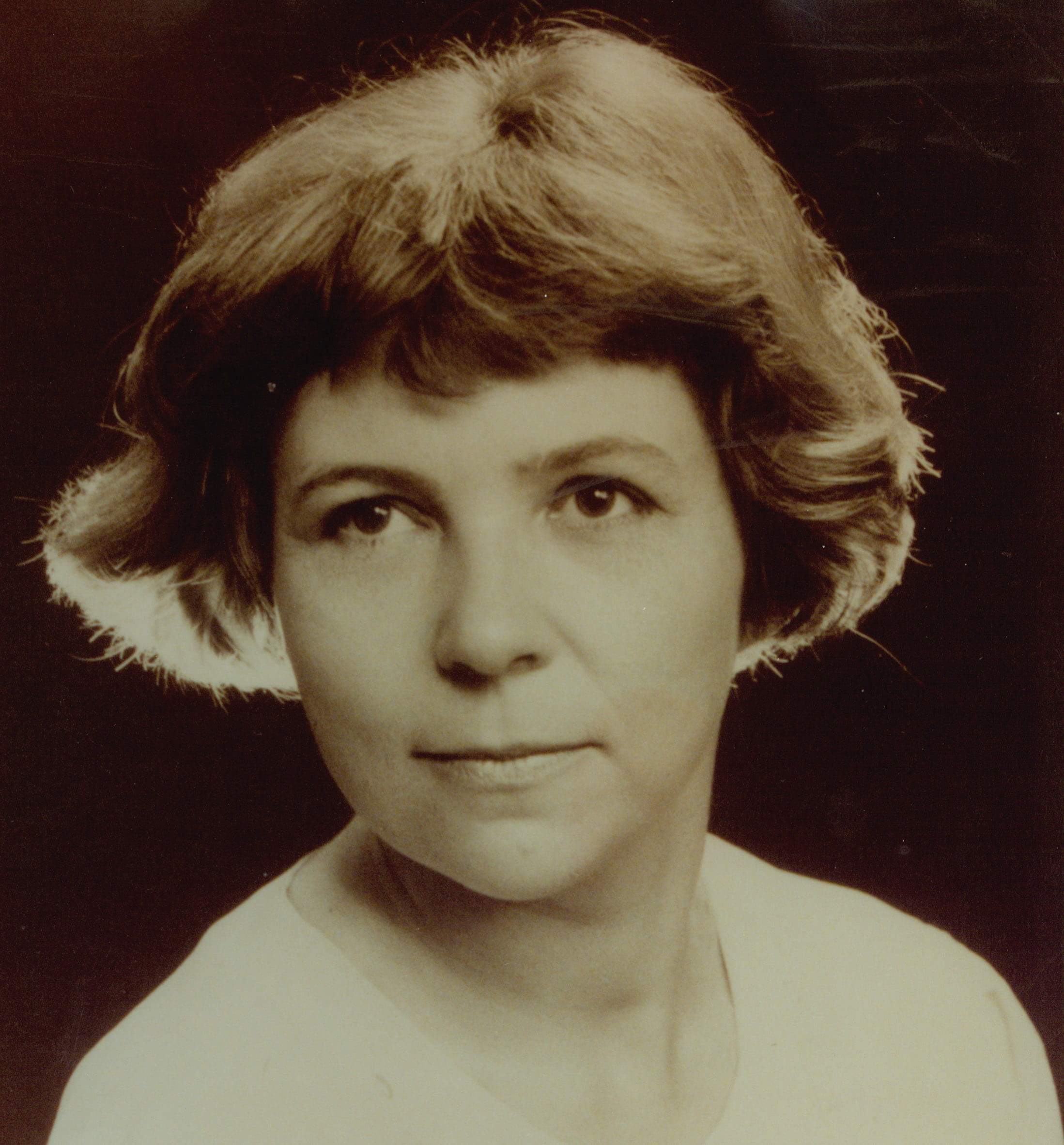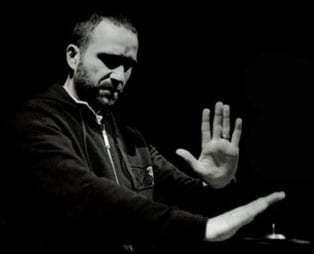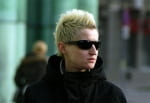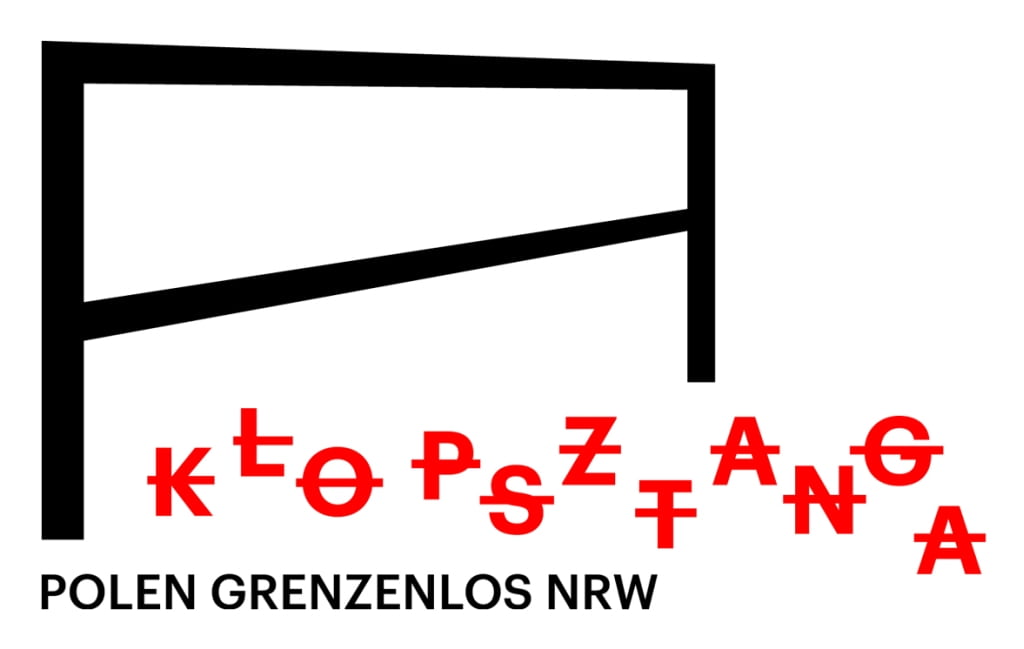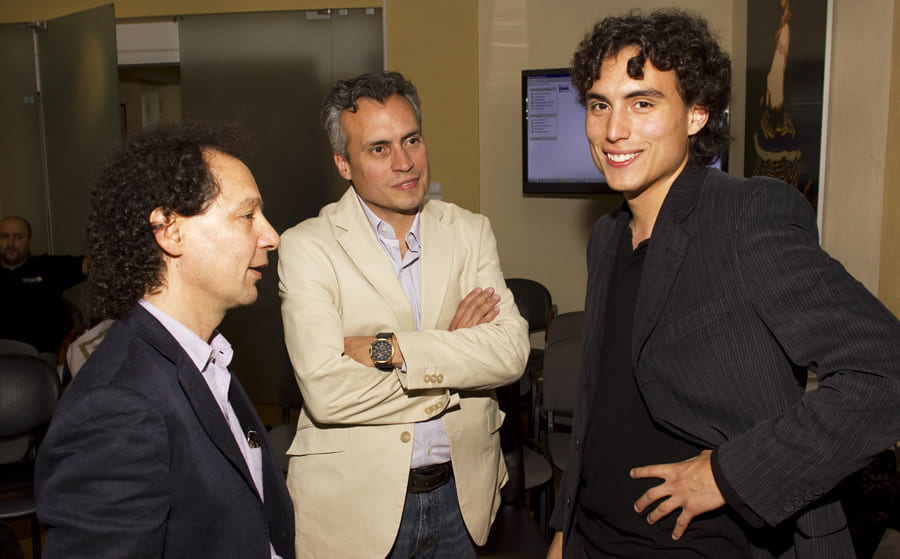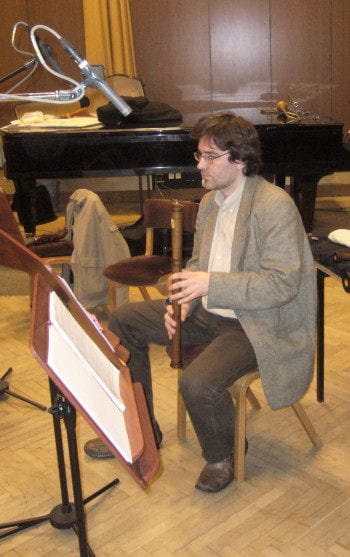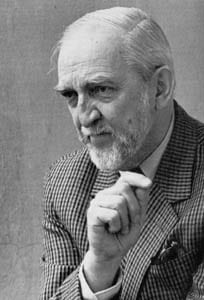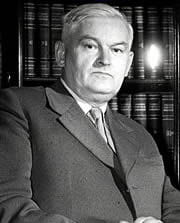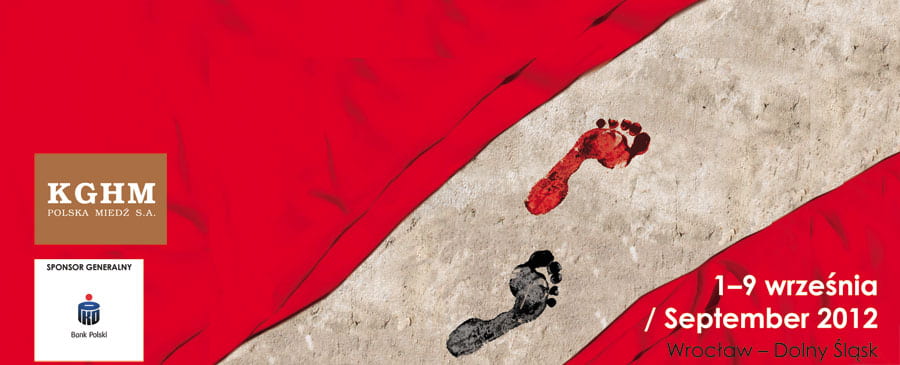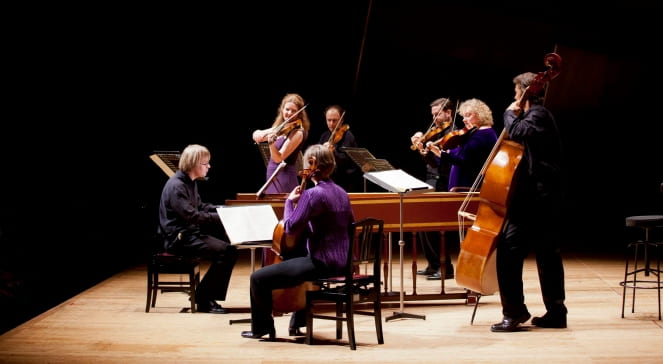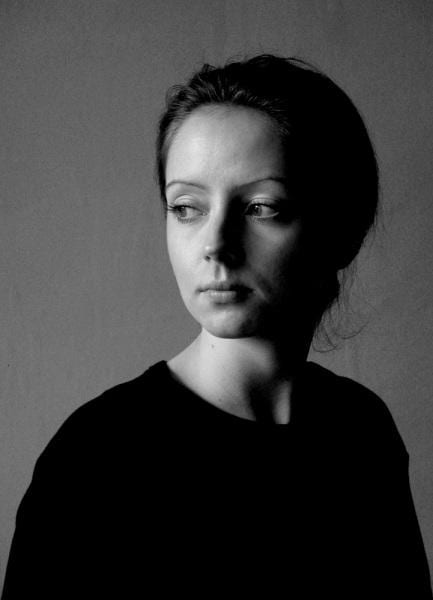Polish Music Newsletter Vol. 18, no. 9
PMC News
Sunset At The Ridings
The 2012 Paderewski Festival Fall Fundraiser, September 23, 4-7 p.m., will marry unparalleled views and a glorious sunset as seen from the spectacular residence of Marilyn and Ken Riding in the Adelaida hills on Paso Robles’ Westside with a brilliant concert by Dr. Lorenzo Sanchez featuring music by Paderewski and Chopin. Splendid wines, including Cass Sparkling, Treana White and Epoch 2009 Estate Blend will be paired with delicious hors d’oeuvres by Chef Kelly Wangard of Summerwood Inn & Winery. Six peerless auction lots, including a private tour of the Paderewski Vineyard coupled with wine tasting and overnight stay at Belvino Viaggio, and collections of difficult-to-secure magnums of notable local wines, will round out the fundraiser.
All proceeds will benefit the 2012 Paderewski Festival and Youth Exchange in Paso Robles. The Paderewski Festival will be held from November 8-11, 2012.
Sunday, September 23 | 4:00 – 7:00 p.m.
2012 Paderewski Festival Fall Fundraiser with Lorenzo Sanchez – piano
Tickets are $75 per person – reserve online or call Kristen at 805-237-7575 x201
Seating is limited
Coming Up: The 2012 Paderewski Lecture-Recital
This year marks the 75th anniversary of Karol Szymanowski’s death. Without a doubt, he was one of the greatest modern Polish composers who, by building upon the achievements of Chopin and Moniuszko, ushered Polish music into the twentieth century. Szymanowski’s body of work and his unique historical position make him the father of modern music in Poland. In fact, the great richness and diversity in Polish contemporary music can be directly linked to Szymanowski’s wide-ranging opus that encompasses late romanticism, impressionism, orientalism, and the assimilation of Polish folk music elements into his later works.
On October 14, the 2012 Paderewski Lecture-Recital will celebrate Szymanowski’s anniversary with a lecture exploring his repertoire for violin, and a recital spanning the range of his many stylistic changes as displayed by his music for voice and piano. Join lecturer Maestro Grzegorz Nowak, Principal Associate Conductor of the Royal Philharmonic, as well as Los Angeles favorites Mark Robson, piano and Timur Bekbosunov, tenor, for this free event at USC.
Sunday, October 14, 2012 | 4:00 p.m.
2012 Paderewski Lecture-Recital
Alfred Newman Lecture Hall, USC (map)
3616 Trousdale Pkwy, Los Angeles, CA
Admission: FREE
Parking: $10, in Parking Structure X (PSX) – enter Gate #3 on McCarthy Way
& Figueroa St.
More info: 213.821.1356 or polmusic@thornton.usc.edu
Paderewski Festival 2012 Preview
Paso Robles, CA. The 2012 Paderewski Festival celebrates the legacy of Ignacy Jan Paderewski (1860-1941)—world famous pianist, composer, statesman, humanitarian, major California Central Coast land holder, vineyard owner, winemaker and almond grower – with four days of concerts and special events featuring internationally renowned performers, young pianists from Poland and the Central Coast region, wine tasting and a special lecture by preeminent Paderewski authority. The Festival will be held in several venues throughout Paso Robles, California, from November 8 to 11, 2012. Admission ranges from free to $30 depending on the event; VIP tickets for all events are $125. Tickets may be purchased online at www.paderewskifest.com or by calling (805) 769-4622.
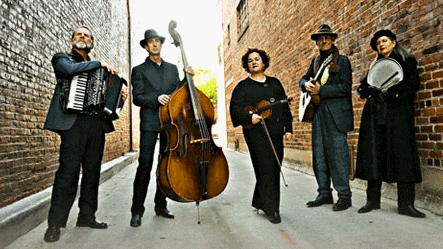 The Opening Concert of the 2012 Paderewski Festival in Paso Robles will take place on Thursday, November 8 at Vina Robles Winery featuring Café Musique, known for their unique musical kaleidoscope of classical, swing, gypsy, folk and tango music. Hailing from the Central Coast of California, Café Musique’s members are Brynn Albanese – violin and vocals, Piper Heisig – percussion and vocals, Duane Inglish – accordion, Fred Murray – bass, and Craig Nuttycombe – guitar and vocals. The evening will also include the “Paderewski Heart” exhibit, presented by Poland’s Ave Arte Foundation. No host wine reception and exhibit viewing starts at 6 p.m., with music to follow at 7 p.m. Tickets are $10 per person.
The Opening Concert of the 2012 Paderewski Festival in Paso Robles will take place on Thursday, November 8 at Vina Robles Winery featuring Café Musique, known for their unique musical kaleidoscope of classical, swing, gypsy, folk and tango music. Hailing from the Central Coast of California, Café Musique’s members are Brynn Albanese – violin and vocals, Piper Heisig – percussion and vocals, Duane Inglish – accordion, Fred Murray – bass, and Craig Nuttycombe – guitar and vocals. The evening will also include the “Paderewski Heart” exhibit, presented by Poland’s Ave Arte Foundation. No host wine reception and exhibit viewing starts at 6 p.m., with music to follow at 7 p.m. Tickets are $10 per person.
Polish-born violinist Kinga Augustyn and Israeli-born pianist Efi Hackmey will give a master class for local pianists and finalists of the Paderewski Youth Piano Competition on Friday, November 9 from 2-4 p.m. at California Polytechnic University in San Luis Obispo. Free admission.
Cass Winery in Paso Robles will once again host the Festival’s Friday evening event, this year featuring Music & Magic with Igor Lipiński, an up-and-coming concert pianist and award-winning magician from Poland. Wine reception starts at 6 p.m. with concert in the Cass Barrel Room following at 7 p.m. Tickets are $20 per person and include a glass of wine.
 On Saturday, November 10 at 10 a.m., Park Cinemas will host a special showing of the romantic tale Moonlight Sonata, a 1937 film featuring exquisite piano solos performed by Paderewski. Free admission.
On Saturday, November 10 at 10 a.m., Park Cinemas will host a special showing of the romantic tale Moonlight Sonata, a 1937 film featuring exquisite piano solos performed by Paderewski. Free admission.
Also on Saturday, November 10 at 12:30 p.m. a new bronze monument of Ignacy Jan Paderewski (left) will be unveiled in the Paso Robles City Park. All are invited to welcome home this honorary Paso Roblan.
Winners of the 2012 Paderewski Youth Piano Competition will be featured in a recital at the historic Paso Robles Inn Ballroom on Saturday, November 10 at 4 p.m. Emerging talents from San Luis Obispo County will again compete with young entrants from Monterey and Santa Barbara Counties for the privilege of appearing at this year’s Festival and participating in the Youth Exchange in Poland. Admission is free.
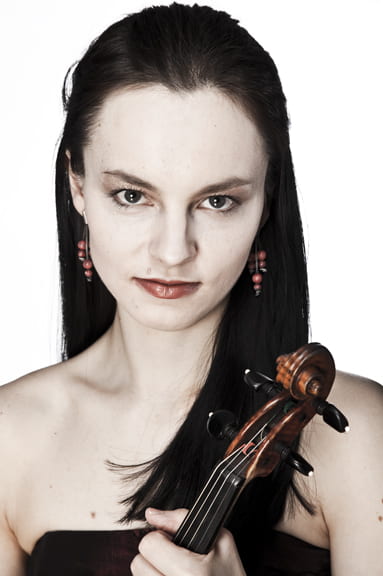 The 2012 Paderewski Festival Gala Concert will feature highly-acclaimed violinist Kinga Augustyn (right) and her recital partner, pianist Efi Hackmey. Their all-Polish program at the Paso Robles Inn Ballroom on Saturday, November 10 at 8 p.m. will include a program of violin and piano music by Ignacy Jan Paderewski, Karol Szymanowski and Henryk Wieniawski. Epoch Estate Wines and Cass Winery will host a wine reception at 7:30 p.m. As in the past few years, the Festival Gala Concert caps the annual Paso Robles ‘Elegant Evening’, a popular event among residents and merchants in the city’s Downtown. Gala Concert general admission tickets are $25 per person, $15 for seniors, and free for students under 18.
The 2012 Paderewski Festival Gala Concert will feature highly-acclaimed violinist Kinga Augustyn (right) and her recital partner, pianist Efi Hackmey. Their all-Polish program at the Paso Robles Inn Ballroom on Saturday, November 10 at 8 p.m. will include a program of violin and piano music by Ignacy Jan Paderewski, Karol Szymanowski and Henryk Wieniawski. Epoch Estate Wines and Cass Winery will host a wine reception at 7:30 p.m. As in the past few years, the Festival Gala Concert caps the annual Paso Robles ‘Elegant Evening’, a popular event among residents and merchants in the city’s Downtown. Gala Concert general admission tickets are $25 per person, $15 for seniors, and free for students under 18.
The 2012 Paderewski Festival will close on Sunday, November 11 at Halter Ranch Winerywith a Guest Lecture at 11:30 a.m. by Dr. Renata Suchowiejko of the Jagiellonian University in Kraków, Poland, followed by lunch and a Recital by the Exchange Program Students from Poland: Marcin Krysa (20), Ula Barnaś (17) and Robert Maciejowski (14). Tickets are $30 per person and include lunch with wine.
In addition to the above listed concerts and events, the Pioneer Museum and Carnegie Library in Paso Robles will have ongoing exhibits and displays of Paderewski memorabilia for Festival goers to enjoy.
The Paderewski Festival in Paso Robles is a non-profit organization that sponsors an annual series of concerts featuring internationally acclaimed artists, the Paderewski Youth Piano Competition and Exchange Program. For further information and schedule of 2012 Paderewski Festival events, please see the Festival’s website, www.paderewskifest.com.
NOVEMBER 8-11, 2012
2012 PADEREWSKI FESTIVAL IN PASO ROBLES
Venues throughout Paso Robles and San Luis Obisbo
Admission: free – $30 (depending on event); all-inclusive VIP tickets – $125
Info: (805) 769-4622; info@paderewskifest.com; www.paderewskifest.com
Also, for an interesting review of the Festival and discussion of Paderewski’s connection to the wine industry of Paso Robles, visit i-winereview.com.
News
Warsaw Autumn 2012 – Festival Intro + Premieres
Below is the introduction to this year’s Warsaw Autumn Festival by Tadeusz Wielecki, Festival Director. Warsaw Autumn is one of the world’s most prestigious music festivals dedicated to the music of today. World premieres by Polish composers to be performed at the 2012 Festival are featured in bold.
The 55th “Warsaw Autumn” International Festival of Contemporary Music(21–29 September 2012) is titled “Warsaw Autumn… with a voice”. That slogan alludes to music that uses text, stage action, and meaning. In other words, opera? Opera too, but as a special case. This year’s festival will often feature an implicit text; a stage action that is merely suggested; an ambiguous meaning. Voice – in the sense of voicing one’s opinion, only then followed by voice as singing.
The programme, therefore, includes a variety of instrumental ‘spoken’ works, such as Jonathan Harvey’s Speakings for orchestra and electronics, a work in which the composer shapes the instrumental sound based on a spectral analysis of the human spoken voice, or Mauricio Kagel’s Ein Brief, where we only hear the opening expression (“Meine Liebe”) from the eponymous (love) letter, after which the soloist sings some very expressive music but with no words at all, although the latter’s presence can be felt. Similarly, American composer and vocalist Ken Ueno’s On a Sufficient Condition for the Existence of Most Specific Hypothesis for overtone singing and orchestra does without words, but alluding to a child’s singing, more specifically Ueno himself aged six, whose voice can be heard at the work’s beginning, aired from a boombox. Also Kryštof Mařatka’s Zvěrohra, a “collection of anthropoid songs” (as per the composer’s description), is a good example of this approach to music. “The piece evokes primitive vocal expressions of the first hominids that, apart from their gestures, begin to discover other possibilities of communication: a complex whole of vocal sounds to which they assign concrete meanings” (from the composer’s commentary).
The above notion of ‘allusion’, familiar from the work of Gombrowicz, leads to a special occasion of this year’s festival: the quasi-opera Geschichte based on Gombrowicz’s play under the same title. The work, composed by Oscar Strasnoy, is scored exclusively for singers: in this case the Neue Vocalsolistenensemble from Stuttgart which will return to Warsaw for the occasion.
The idea of this year’s festival is also connected to the various ways in which music links to non-musical means of expression. Apart from Geschichte, we will present the first Polish performance of Georges Aperghis’ Luna Park for voice, contrabass flute, percussion and computer (a work co-commissioned by Paris’ IRCAM and Warsaw Autumn). The European Workshop for Contemporary Music will also present a music theatre concert featuring first world performances, commissioned by Warsaw Autumn with Jagoda Szmytka [Happy Deaf People], by Polish Radio Channel 2 with Artur Zagajewski [Canto], and a new version of Vivarium by Manos Tsangaris, pupil of the creator of instrumental theatre as a genre, Mauricio Kagel. The Petrini–Jünger duo (contrabass flutes) will give the first world performances of works by Kent Olofsson, Pierre Jodlowski [Hyperspeed Disconnected Motions] and Aleksandra Gryka [Observerobserver]. These will be multimedia works scored for low-register flutes, electronic sounds and video. The Camerata Silesia singers’ ensemble will present Paweł Szymański’s Phylakterion, a work performed in Greek that can be termed a musical praying ritual, inspired by early Christian writings uncovered at archeological excavations in southern Egypt. This concert, which will take place at the Evangelical Reformed Church, will also feature choral works by Krzysztof Baculewski, Anna Korsun (Ukraine) and Justė Janulytė (Lithuania).
One of the festival’s main events, relating to our central programme idea, will be INORI, a composition for dancers (or mimes) and orchestra (in a version for dancer and tape). Written by Karlheinz Stockhausen, the work features a number of gestures (prayers, rituals) borrowed from many world cultures closely synchronised with sounds and, in a way, visualising the musical flow. Our soloist for this occasion will be also the very demanding work’s producer, Agnieszka Kuś.
 For the first time, Warsaw Autumn will feature a duo of eminent young musicians: Maciej Frąckiewicz (accordion) and Magdalena Bojanowicz (cello). They will present compositions by Adriana Hölszky and Matthias Pintscher as well as talented young composer Wojciech Blecharz [Means of Protection] (another Warsaw Autumn debut). This will be the first world performance of a new work, part of a larger opera project on which the composer is currently working. This work, commissioned by Warsaw Autumn, is scored for accordion, cello and solo voice, the latter performed by leading mezzo-soprano Anna Radziejowska. In the second part of the concert, Ms. Radziejowska together with the Aukso orchestra will perform Salvatore Sciarrino’s Cantiere del poema, a work composed and dedicated expressly to this singer. Sciarrino is one of Italy’s leading composers, renowned for his vocal-instrumental works and operas.
For the first time, Warsaw Autumn will feature a duo of eminent young musicians: Maciej Frąckiewicz (accordion) and Magdalena Bojanowicz (cello). They will present compositions by Adriana Hölszky and Matthias Pintscher as well as talented young composer Wojciech Blecharz [Means of Protection] (another Warsaw Autumn debut). This will be the first world performance of a new work, part of a larger opera project on which the composer is currently working. This work, commissioned by Warsaw Autumn, is scored for accordion, cello and solo voice, the latter performed by leading mezzo-soprano Anna Radziejowska. In the second part of the concert, Ms. Radziejowska together with the Aukso orchestra will perform Salvatore Sciarrino’s Cantiere del poema, a work composed and dedicated expressly to this singer. Sciarrino is one of Italy’s leading composers, renowned for his vocal-instrumental works and operas.
On the 100th anniversary of Arnold Schoenberg’s composition of the dramatic concert cycle Pierrot lunaire, the masterpiece of musical expressionism, Warsaw Autumn will feature a project including a performance of Schoenberg’s classic by the New Music Orchestra directed by Szymon Bywalec as well as an artistic commentary to that work in the form of a new composition by Maciej Jabłoński: Księżycowy Pierrot [Lunar Pierrot] for actor, instrumental ensemble, electronic sounds and video, commissioned by Warsaw Autumn. The solo Sprechgesang part in Schoenberg’s work will be performed by Agata Zubel. Pierrot lunaire will serve as the historical context for a number of works referring to this year’s festival’s main slogan: “Warsaw Autumn… with voice”. Let me mention that our final concert will feature Matthias Pintscher’s Herodiade-Fragmente, also inspired by Schoenberg’s work.
The human voice will also feature in two concerts that can unanimously be mentioned as one of this year’s festival’s major events: one played by the Experimental-Studio Freiburg, and the other by Ensemble Intercontemporain from Paris. Freiburg’s renowned electronic music studio will present works scored for voices, instruments and electronic sounds: Luigi Nono’s Guai ai gelidi mostri, works by Chaya Czernowin and Mark André, as well as the first world performance of a new composition by Jamilia Jazylbekova. The Ensemble Intercontemporain, one of the leading chamber orchestras performing contemporary music, will be directed by Patrick Davin in two compositions by György Kurtág: 4 Capriccios and Four Poems by Anna Akhmatova (sung by soprano Natalya Zagorinskaya), as well as three first performances of works by Polish composers Tadeusz Wielecki [Punkty słyszenia (Points of Hearing)], Stanisław Bromboszcz [Con tensione] and Lidia Zielińska [Ukiyo] (the latter two commissioned by Warsaw Autumn).
Other symphonic concerts, apart from the opening concert featuring the National Philharmonic Orchestra of Poland directed by eminent French conductor Pascal Rophé, and the final concert played by the National Polish Radio Symphony Orchestra in Katowice under the charismatic Lucas Vis, will include another performance by the National Philharmonic, this time under the baton of young talented conductor Rafał Janiak. These concerts, apart from the aforementioned works by Harvey, Kagel, Mařatka, Ken Ueno and Matthias Pintscher, will also feature the Pittsburgh Ouverture by Krzysztof Penderecki (first Polish performance), Dutch composer Rosalie Hirs’ Roseherte for orchestra and electronic sounds, Witold Szalonek’s Concerto per violbasso e orchestra, and Kaija Saariaho’s D’om le vrai sens (featuring Finnish clarinet virtuoso Kari Kriikku).
We will also continue Little Warsaw Autumn, our contemporary music festival for children. Among other activities, we will present Federico’s Little Songs for Children by George Crumb, a cycle of seven short pieces for soprano, flute and harp to poems by Federico García Lorca, and Cinq études de bruits by electronic music pioneer Pierre Schaeffer: the first works ever written for tape (in 1948) and, as such, an outstanding example of musique concrète. Moreover, an interactive installation Dźwiękoświsty by Łukasz Szałankiewicz will be open at the Zachęta Gallery throughout the festival. On a Warsaw Autumn commission, composer Jerzy Kornowicz will also perform a musical promenade / open-air composition at the Łazienki park. Dagna Sadkowska and Michał Górczyński will run a workshop for children (and partly for parents); these creative musicians will present, among others, beatboxing animals and musical cuisines of the world.
[Source: warszawska-jesien.art.pl]
Łukaszewski Premiere In Riga
The world premiere of Symphony No. 3 “Song of Angels” by Paweł Łukaszewski (b. 1968) was given at the International Sacred Music Festival in Riga, Latvia on August 28, 2012. The work was performed in Riga’s St. Peter’s Church by the State Choir Latvija, the Latvian National Symphony Orchestra, and soloists Inga Šļubovska, Liene Kinča and Rafał Bartminski.
The performance was led by Māris Sirmais, a conductor with expertise in the field of choral singing, and the artistic director of Latvija Choir since 1997. His repertoire also includes Łukaszewski’s First and Second Symphonies, which he performed in Latvia last year.
Composed in 2010 under the auspices of the City of Warsaw Stipend program, Symphony No. 3 “Song of Angels” was inspired by the composer’s extensive study angelographic literature and ancient apocryphal texts. “Angels are spiritual creatures, incorporeal, having no body,” writes Łukaszewski. “They occur not only in Christianity and Judaism, but also in Islam and ancient Iranian religions.”
Already serving as a professor at the Fryderyk Chopin Music University in Warsaw, Paweł Łukaszewski was appointed recently to the post of lecturer at the Academy of Arts in Szczecin. Łukaszewski served as the 2011 Paderewski Lecturer at USC in Los Angeles.
[Sources: lettonie-francija.fr, pwm.com.pl, lukaszewski.org.uk, kamer.lv]
Premieres At Sacrum Profanum
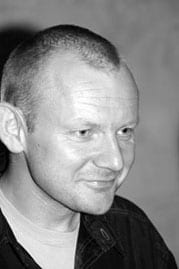 King Lear, a new musical composed by Paweł Mykietyn (left), will premiere during the inauguration of the Sacrum Profanum Festival on September 9, 2012. The lyrics are by Rodrigo Garcia, a Spanish playwright and director of King Lear. They also include passages taken from Shakespeare. The text was adapted by Piotr Gruszczyński of Teatr Nowy. The premiere will feature the following performers: Matteo de Monti (King Lear), Katarzyna Moś (Kordelia), Julieta Gonzalez (Goneryla), Beatriz Blanco (Regana) and the Ensemble Modern Orchestra.
King Lear, a new musical composed by Paweł Mykietyn (left), will premiere during the inauguration of the Sacrum Profanum Festival on September 9, 2012. The lyrics are by Rodrigo Garcia, a Spanish playwright and director of King Lear. They also include passages taken from Shakespeare. The text was adapted by Piotr Gruszczyński of Teatr Nowy. The premiere will feature the following performers: Matteo de Monti (King Lear), Katarzyna Moś (Kordelia), Julieta Gonzalez (Goneryla), Beatriz Blanco (Regana) and the Ensemble Modern Orchestra.
Discussing his new composition and its form, Paweł Mykietyn said:
It is a form in which the text is completely equal to the music. The Shakespearean verses are sung while the words of Garcia are spoken. One could say this speech is a kind of Sprechgesang, written in rhythm and notated in measures of music. The music follows the text, being more or less illustrative. Shakespeare’s texts are about eight percent of this composition and the rest are texts by Garcia. There is no clear storyline and the plot is subordinate to the text…. It is difficult to determine the form as it is a two-part composition. I called it a musical, though it isn’t strictly a musical. Surely it is not an opera; I never intended to call it an opera, since the essence of this work is that there is no signing, but rather the opposite – almost all of it is spoken.
The program of this year’s 10th Sacrum Profanum Festival also includes monographic concerts of the works of four other young Polish composers: Aleksander Nowak(September 10), Marcin Stańczyk (September 11), Cezary Duchnowski (September 12), and Agata Zubel (September 13) at the Teatr Łaźnia Nowa.
 During Aleksander Nowak’s concert, audiences will hear the world premiere of two pieces written on special commission for this year’s Festival: Hit II and Night Transit. Concerning the inspiration for the latter piece the composer (right) said:
During Aleksander Nowak’s concert, audiences will hear the world premiere of two pieces written on special commission for this year’s Festival: Hit II and Night Transit. Concerning the inspiration for the latter piece the composer (right) said:
Such journeys are associated with a particular state of suspension—between places and dates, as well as between the events that took place prior to the trip and will take place after it; everything that happens now, while travelling to a temporary dimension and apparently operating according to principles other than daily life principles. Such journeys are also associated with a particular kind of sonic aura—absolutely dominant is the sound related to the means of transport, that is, one or another engine and type of surface or medium through which we move. This mechanical, repetitive and in a certain way aggressive tone becomes a backdrop for all thoughts and feelings, giving them rhythm and color. We cannot escape it, therefore we must in some way tame it and “unite” with it. It all adds up to a specific, near trance state of consciousness.
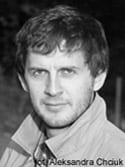 These premieres will be interwoven with others of Aleksander Nowak’s compositions and pieces by Aphex Twin arranged for performance by the Alarm Will Sound ensemble.
These premieres will be interwoven with others of Aleksander Nowak’s compositions and pieces by Aphex Twin arranged for performance by the Alarm Will Sound ensemble.
During Marcin Stańczyk’s monographic concert, his work Geysir-Grisey will be given its world premiere by Bang on a Can All-Stars featuring Envee, one of Poland’s best known and highly regarded Polish producers and DJs. Bang on a Can All-Stars will also perform the Polish premiere of Mosaïque and other works by Stańczyk (left).
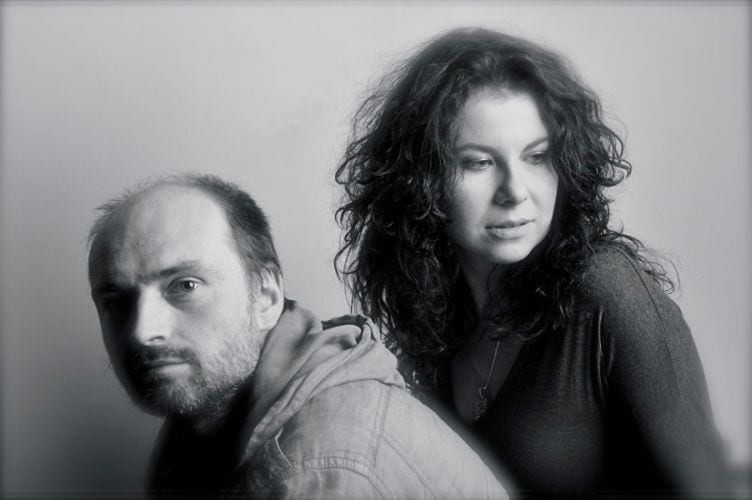 The program of the monographic concert focused on Cezary Duchnowski (pictured at right, with Agata Zubel) features one piece: the world premiere of I for ensemble and live electronics, performed by Ensemble musikFabrikfeaturing Polish DJ Igor Boxx.
The program of the monographic concert focused on Cezary Duchnowski (pictured at right, with Agata Zubel) features one piece: the world premiere of I for ensemble and live electronics, performed by Ensemble musikFabrikfeaturing Polish DJ Igor Boxx.
During Agata Zubel’s monographic concert, two world premieres will be given: Not I, to poems by Samuel Beckett and Ulicami ludzkiego miasta [The Streets of Human City]. Also on the program are the Polish premieres of The Shades of Ice, written for the London Sinfonietta and Labyrinth to text by Wiesława Szymborska. The compositions are performed by Agata Zubel and Klangforum Wien.
[Sources: sacrumprofanum.com, pwm.com.pl, pwm.com.pl]
Nowakowski Premiere
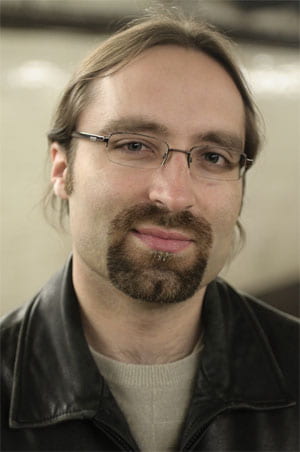
This year marks the 10th anniversary of the Mozart 2003 Foundation Festival. Each year choristers and musicians from around Poland gather to perform a series of sacred choral and orchestral works, centered on the liturgical presentation of a Mozart Mass, all under the baton of rising star Szymon Wyrzykowski. This year’s composer in residence is Chicago-born Mark Nowakowski, whose O Beauty Uncreated—a setting of a text by St. Faustyna Kowalska—will receive its world premiere during this year’s Festival. The Festival will take place from September 9-16, in the following cities:
9 Sept.: Cieszyn Krasna, Kościół pw. Najświętszego Serca Jezusowego, 6:00 p.m.
11 Sept.: Bielsko Biała, Kościół pw. Świętego Pawła Apostoła, 6:00 p.m.
12 Sept.: Katowice, Kościół Mariacki, Plac Ks. Emila Szramka 1, 6:00 p.m.
13 Sept.: Sosnowiec, Bazylika Wniebowzięcia NMP, Kościelna 1, 6:00 p.m.
14 Sept.: Częstochowa, Bazylika Jasnogórska, ul. O.A. Kordeckiego 2, 7:00 p.m.
15 Sept.: Katedra pw. Opieki NMP, ul. Sienkiewicza 13, 6:00 p.m.
16 Sept.: Warszawa, Kościół Św. Jakuba Apostoła, ul. Grójecka 38, 7:00 p.m.
[Sources: press release, marknowakowski.com]
Przybylski And Zalewski: ‘Scratch’ Premieres
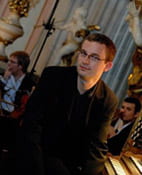 Dariusz Przybylski’s composition Alleluia! Cantata (2012) as well as Ignacy Zalewski’s Scratch-Cantata (2012) were given their world premiere on September 7, 2012 during the International Scratch-Cantatas Festival in Nizhny Novgorod, Russia. “Scratch-Cantatas” is a project which unites composers from different countries who wrote short dramatic compositions (no longer than 15 minutes) in the cantata format for the unusual ensemble of performers: chamber orchestra, boys’ choir, one soloist, three saxophones, drum set and a DJ (Scratch).
Dariusz Przybylski’s composition Alleluia! Cantata (2012) as well as Ignacy Zalewski’s Scratch-Cantata (2012) were given their world premiere on September 7, 2012 during the International Scratch-Cantatas Festival in Nizhny Novgorod, Russia. “Scratch-Cantatas” is a project which unites composers from different countries who wrote short dramatic compositions (no longer than 15 minutes) in the cantata format for the unusual ensemble of performers: chamber orchestra, boys’ choir, one soloist, three saxophones, drum set and a DJ (Scratch).
 Among others, the Municipal Chamber Orchestra “Soloists of Nizhni Novgorod,” the Boys’ Choir of Nizhni Novgorod and conductor Evgeny Kirillov performed during the festival. DJ Xolkin from Yekaterinburg, Russia and VJ Lillevan Pobjoy from Germany also participated in the event. Among the Polish composers participating in the final concert, six other guest composers were invited: Henning Fuchs and Kat Kaufmann from Germany, Jan Jirucha from the Czech Repubic, and Alexander Zhemchuzhnikov, Oleg Paiberdin and Olga Shaidullina from Russia.
Among others, the Municipal Chamber Orchestra “Soloists of Nizhni Novgorod,” the Boys’ Choir of Nizhni Novgorod and conductor Evgeny Kirillov performed during the festival. DJ Xolkin from Yekaterinburg, Russia and VJ Lillevan Pobjoy from Germany also participated in the event. Among the Polish composers participating in the final concert, six other guest composers were invited: Henning Fuchs and Kat Kaufmann from Germany, Jan Jirucha from the Czech Repubic, and Alexander Zhemchuzhnikov, Oleg Paiberdin and Olga Shaidullina from Russia.
The organizers of the festival include the city of Nizhny Novgorod, the National Center of Contemporary Art, as well as the Center of German Culture in Nizhny Novgorod. Partners of the festival include: Goethe-Institute in Moscow, German Embassy in Moscow, Polish Institute in Moscow, Czech Institute, and Russian Physics Institute of Academics.
[Source: polmic.pl]
Witold Lutosławski: About Music
“Talent is not an artist’s personal merit, but rather an entrusted gift, which he must share with his audience unconditionally. “ – Witold Lutosławski
 Witold Lutosławski: O muzyce. Pisma i wypowiedzi [Witold Lutosławski: About Music – Speeches and Writings]
Witold Lutosławski: O muzyce. Pisma i wypowiedzi [Witold Lutosławski: About Music – Speeches and Writings]
Edited by Zbigniew Skowroń
Published by Terytoria
ISBN 978-83-7453-078-1, 486 pages
This new book is a collection of a wide range of speeches and writings by Witold Lutosławski, edited by Prof. Zbigniew Skowroń. The first chapter consists of text describing his thoughts on beauty, musical format, compositional technique, creation and perception. The second chapter is dedicated to commentaries in concert programs, as well as detailed analyses presented during various musicological symposia.
In chapter three, Lutosławski discusses his circle of composers and musicians, particularly those closest to him. The fourth differs from t the other chapters in that it contains speeches and writings about various aspects of contemporary life in Poland and abroad, as well as texts describing the composer’s character. Finally, chapter five contains the speeches Lutosławski gave during special occasions, such as being awarded his honoris causa doctorate.
Witold Lutosławski’s writings have so far remained in the shadow of his compositional achievements, partially due to the fact that they were dispersed in a variety of hard to reach sources, and many of his works had remained unpublished. This new publication of his collected writings and speeches reveals the composer’s depth of literary achievements and multidirectional interests. It shows not only a composer interested in revealing the secrets of his own compositional technique and construction, but also a prudent and critical observer of Polish musical life, as well as its social and political dimension.
Listen to discussions with Zbigniew Skowroń, professor and editor of O Muzyce, on the Polish Radio website: www.polskieradio.pl . Also, Adam Wiedemann’s discussion of O Muzyce appeared in periodical Dwutygodnik at www.dwutygodnik.com.
[Sources: lutoslawski.org.pl, terytoria.com.pl]
Klopsztanga: Poland Without Borders
The “Klopsztanga: Polska bez granic / Polen grenzenlos” [Klopsztanga: Poland without Borders] project kicked off at the Schauspiel Köln on April 15, 2012, with a concert featuring Baaba, m.bunio.s and Gaba Kulka. Since the inaugural concert, events introducing German audiences to the freshest and most significant aspects of Polish art, film, music and literature have taken place in over 20 German cities, and will continue through December—for concerts to be held in September in Dusseldorf, see klopsztanga.de/pl/t/muzyka. This unique project dedicated to promoting Polish culture across Germany’s North Rhine-Westphalia region in 2012 draws its inspiration from a typical object with a not-so-typical cultural significance.
The name of the project draws its inspiration from the word klopsztanga, or trzepak in Polish, which stands for a hanging frame used for beating rugs in the Silesian dialect. Spoken in the south-western areas of Poland, this dialect is considered by some to be a distinct language. The word is related to the German word Klopfstange, thereby linking the two neighboring nations through language. In Poland the hanging frame holds a particular significance for cultural life, being for many decades, the object that focused the social life of communities, a special place which attracted groups of people who played games and ideas. It remains a symbol of meeting and interaction, particularly for the tough times of communism, where everything was lacking – including suitable meeting places. The klopsztanga (hanging frame) has become a symbol of an ongoing dialogue between artists, institutions, and social organizations from Poland and Nordrhein-Westfallen. The region is one of the most important in Germany and boasts the largest industry of the nation.
Klopsztanga‘s symbolic potential was devised by Paweł Potoroczyn, the director of the Adam Mickiewicz Institute, together with vice director Joanna Kiliszek. The project and its cultural significance was presented at the inauguration ceremony on April 4 in Warsaw at the Adam Mickiewicz Institute. There Potoroczyn suggested that the hanging frame used to function as a cultural spot connecting people both in Polish and German courtyards. He went on to compare the function of the klopsztanga with networking and facebook today. They serve the same purpose: concentrating different energies. For Potoroczyn klopsztanga is also an apt symbol for Polish-German relations.
The project includes over 70 cultural events spanning all fields of culture and serves as the flip side of last year’s successful Tam’Tam – German Cultural Season in Poland, which presented cultural projects from the region in 13 Polish cities.
For more info, see www.klopsztanga.de.
[Source: culture.pl, klopsztanga.de]
Polish Music In Brazil
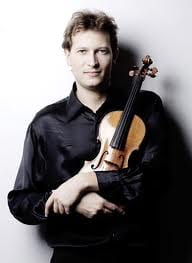 On September 9 at the Teatro Amazonas in Manaus, Brazil, the Amazonas Filarmônica turns to Polish repertoire for another concert in their Series Guaraná. Maestro Luiz Fernando Malheiro will lead the ensemble, and special guest violinist Nicolas Koeckert will perform Szymanowski’s Violin Concerto No. 1. Also on the program are the Overture to Stanisław Moniuszko’s Halka and Mieczyław Karłowicz’s “Stanisław i Anna Oświęcimowie” Symphonic Poem, Op. 12.
On September 9 at the Teatro Amazonas in Manaus, Brazil, the Amazonas Filarmônica turns to Polish repertoire for another concert in their Series Guaraná. Maestro Luiz Fernando Malheiro will lead the ensemble, and special guest violinist Nicolas Koeckert will perform Szymanowski’s Violin Concerto No. 1. Also on the program are the Overture to Stanisław Moniuszko’s Halka and Mieczyław Karłowicz’s “Stanisław i Anna Oświęcimowie” Symphonic Poem, Op. 12.
[Source: facebook.com]
Plowright & Szymanowski Qtet In Lviv
 British pianist Jonathan Plowright recently visited the culturally diverse UNESCO Heritage city of Lviv, on the border between East and West, to join the 5th Lviv Chamber Music Festival (September 6-9, 2012). On the program were the Piano Quartet of Władisław Żeleński and the Piano Quintet of Juliusz Zarębski. He performed these gems of the chamber repertoire with the Festival’s founders, the Szymanowski Quartet, with whom he has just recorded the works for Hyperion Records (CDA67905 – due out in December 2012). The concerts took place on September 6 and 8 in the Ludkevych Concert Hall of the Lviv Philharmonic.
British pianist Jonathan Plowright recently visited the culturally diverse UNESCO Heritage city of Lviv, on the border between East and West, to join the 5th Lviv Chamber Music Festival (September 6-9, 2012). On the program were the Piano Quartet of Władisław Żeleński and the Piano Quintet of Juliusz Zarębski. He performed these gems of the chamber repertoire with the Festival’s founders, the Szymanowski Quartet, with whom he has just recorded the works for Hyperion Records (CDA67905 – due out in December 2012). The concerts took place on September 6 and 8 in the Ludkevych Concert Hall of the Lviv Philharmonic.
[Source: press release, lviv-festival.com]
I, Culture Orchestra – 2012 Tour
Led by the 19-year-old Venezuelan conductor Iiyich Rivas, the second edition of the I, Culture Orchestra will be on tour during late August and September. The I, Culture Orchestra was created last year by the Adam Mickiewicz Institute in order to enable young musicians from Eastern European countries to foster mutual knowledge and understanding of each other’s’ cultures. The Orchestra is composed of 97 young musicians (aged 18-28), chosen during the two rounds of auditions. Marshall Marcus, the chaperone of this year’s ensemble, commented:
Musicians from Azerbeijan and Armenia are seated next to one another. And although these two countries are currently in conflict, the young musicians cooperate together and communicate well. It is a proof of the fact that culture reaches places that politics fails to do…. Our aim is to create a new quality in the I, Culture Orchestra, not an imitation. We are not interested in copying boring schemes. If we provide these young artists with the tools, they will be able to create this quality over the short period of two weeks and carry it onto their future careers.
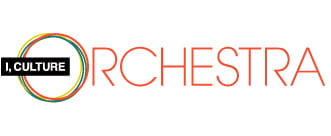 Concert programs for the tour include Tchaikovsky’s Overture-Fantasy Romeo and Juliet, Ottorino Respighi’s Fountains of Rome, Karol Szymanowski’s Etude Op. 4 no. 3, and Antonin Dvořák’s Symphony No. 8. Performance dates and venues are: Lublin Philharmonic (24 August), National Philharmonic Hall, Warsaw (26 August), Belorussian State Philharmonic, Minsk (27 August), National Philharmonic, Kiev (28 August), National Palace, Chisinau, Moldova (29 August), and Music Conservatory, Tbilisi (1 September).
Concert programs for the tour include Tchaikovsky’s Overture-Fantasy Romeo and Juliet, Ottorino Respighi’s Fountains of Rome, Karol Szymanowski’s Etude Op. 4 no. 3, and Antonin Dvořák’s Symphony No. 8. Performance dates and venues are: Lublin Philharmonic (24 August), National Philharmonic Hall, Warsaw (26 August), Belorussian State Philharmonic, Minsk (27 August), National Philharmonic, Kiev (28 August), National Palace, Chisinau, Moldova (29 August), and Music Conservatory, Tbilisi (1 September).
The tour was preceded by a two-week residency in Lublin, known as the capital of Eastern Poland. The young musicians of I, Culture Orchestra will live in the headquarters of the Lublin Philharmonic and receive tutoring from members of the several prestigious British ensembles: the Philharmonia Orchestra, the Orchestra of the Age of Enlightenment, the London Symphony Orchestra, the BBC Symphony Orchestra, and the London Sinfonietta.
[Sources: culture.pl, pwm.com.pl, orchestra.iam.pl]
Paderewski Music Society Fundraiser
 The Biernacki Music Salon in Newport Coast, CA will host a fundraising event on Sunday, September 23, 2012, 5:00 PM, on behalf of the 2nd American Paderewski Piano Competition organized by the Paderewski Music Society. The evening will feature pianists Marina Grozdanovic (above left) and Dmitry Rachmanov (above right) in concert, as well as cocktails, hors d’oeuvres, and desserts. A silent auction featuring Paderewski label 2008 Zinfandel among variety of other attractive items will also be held.
The Biernacki Music Salon in Newport Coast, CA will host a fundraising event on Sunday, September 23, 2012, 5:00 PM, on behalf of the 2nd American Paderewski Piano Competition organized by the Paderewski Music Society. The evening will feature pianists Marina Grozdanovic (above left) and Dmitry Rachmanov (above right) in concert, as well as cocktails, hors d’oeuvres, and desserts. A silent auction featuring Paderewski label 2008 Zinfandel among variety of other attractive items will also be held.
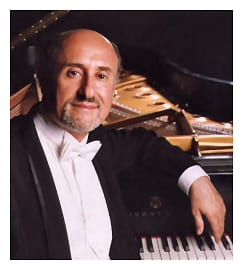 Sunday, September 23, 2012 | 5:00 PM
Sunday, September 23, 2012 | 5:00 PM
Paderewski Music Society Fundraiser in Canoga Park
*private location – the address will be provided upon reservation
RSVP by September 15, 2012 along with your tax deductible donation to:
Paderewski Music Society
8504 Independence Avenue, Canoga Park, CA 91304
e-mail: c.onzol@ijpaderewski.org / phone: 818.456.7742
(Checks or PayPal only – for PayPal donations please use the following address: mail@ijpaderewski.org)
Cocktail attire
Suggested donation: $75
[Sources: press release, ijpaderewski.org]
Lira Singers In MN
 The Lira Ensemble presents a Concert of Polish Music at the Basilica of St. Stanislaus Kostka in Winona, MN on September 8th, 2012 at 7pm. The concert features The Lira Singers performing Polish sacred, classical & folk music, in celebration of St. Stanislaus Kostka’s new status as a minor Basilica, as granted by the Vatican. Also featuring guest star Daniel Szefer, 13-year old piano prodigy who will perform the works of Frederic Chopin.
The Lira Ensemble presents a Concert of Polish Music at the Basilica of St. Stanislaus Kostka in Winona, MN on September 8th, 2012 at 7pm. The concert features The Lira Singers performing Polish sacred, classical & folk music, in celebration of St. Stanislaus Kostka’s new status as a minor Basilica, as granted by the Vatican. Also featuring guest star Daniel Szefer, 13-year old piano prodigy who will perform the works of Frederic Chopin.
Saturday, September 8th, 2012 7:00pm
The Basilica of St. Stanislaus Kostka
625 East 4th Street, Winona, Minnesota
Admission is Free
Free Wine and Cheese Reception at 6pm / Free Dessert Reception following the concert
[Source: press release]
Awards
Ars Nova Members Honored By The Polish Gov
Two members of the early music ensemble Ars Nova (est. 1981 by the Warsaw Music Society) have received national honors in August. Ars Nova’s artistic director, Jacek Urbaniak (above left), received the Silver Cross of Merit awarded by the President of the Polish Republic, Bronisław Komorowski. The award was presented to Urbaniak by Governor of the Mazowiecki region at a ceremony in Myszyńcu Miodobrania on August 26, 2012.
Ars Nova’s woodwind expert, Krzysztof Owczynik (above right), also received the Badge of Honor recognizing “Merit for Polish Culture,” presented by the Minister of Culture and National Heritage, Bogdan Zdrojewski.
[Source: polmic.pl]
Penderecki Int’l Composers’ Competition
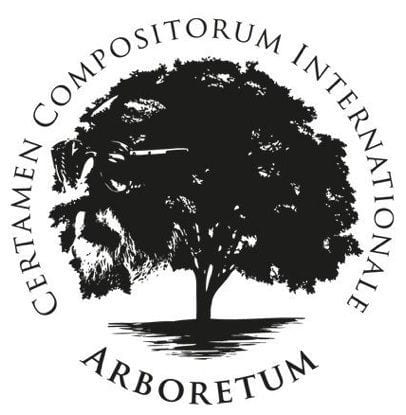 The Radom Chamber Orchestra organizes the Krzysztof Penderecki International Composers’ Competition – Certamen Compositorum Internationale ARBORETUM, open to young and unknown composers. The deadline to submit works was July 8 and the names of the first round finalists were announced on September 1.
The Radom Chamber Orchestra organizes the Krzysztof Penderecki International Composers’ Competition – Certamen Compositorum Internationale ARBORETUM, open to young and unknown composers. The deadline to submit works was July 8 and the names of the first round finalists were announced on September 1.
During the first stage of the competition three jury members, including composers Paul Patterson and Piotr Moss as well as the director of the Radom Chamber Orchestra, Maciej Żółtowski, selected the following 6 works from the 47 qualifying compositions submitted:
- Avenarius – Introjekcja na orkiestrę smyczkową – Wojciech Błażejczyk
- Prisma – Prismatic shapes for string orchestra – Bartosz Kowalski
- bredfal5 – …Stretched for strings – Adam Porębski
- 2710987761045 – In Memoriam V.M. – An Epitaph for Sixteen Strings – Stanko Simić
- Drawing (graphics) – In Arboretum – A Fantasia for String Orchestra – Geoffrey Allan Taylor
- Parnasse – Poem for string orchestra – Ignacy Zalewski
The six finalists, in order as above
In the second round, these six finalists will be given their world premiere by the Radom Chamber Orchestra during the Competition’s final concert on November 10 in the Krzysztof Penderecki Concert Hall of the combined Music Schools in Radom. The final verdict regarding prizes belongs to chairman of the jury, Krzysztof Penderecki. Prizes include: 1st prize – 30000 PLN, 2nd prize – 10000 PLN, 3rd prize – 5000 PLN, and Special Prize for the youngest composer qualified to the 2nd round – masterclasses with Prof. Krzysztof Penderecki.
The theme of the competition, “Arboretum,” reflects the passions of Prof. Penderecki. The composer, who lives in a restored manor house in Lusławice, Małopolska Province, planted a 5-acre garden with approximately 1800 kinds of trees and shrubs from all over the world. Penderecki told the Polish Press Agency, PAP, that the planning of a garden and planting of trees can be compared to planning of the score. “You cannot plant tress wherever you want, just like you cannot place notes wherever you want.” He added, “It needs to be carefully thought out.”
[Sources: beethoven.org.pl, rok.art.pl]
Awards At Transatlantyk
The awards of the annual TRANSATLANTYK International Film and Music Festival—the Glocal Hero Award 2012, Instant Composer Award 2012, Young Composer Award 2012 and Audience Award 2012—were presented during the Festival’s Closing Gala, held at the Gala at Stanisław Moniuszko’s Grand Theater in Poznań on August 21, 2012. In addition to the awards ceremony, the Gala featured a concert of l’Autunno Chamber Orchestra conducted by Adam Banaszak, with soloists Jakub Drygas – clarinet, Mischa Kozłowski – piano and Maxima Sophia Sitarz – violin. The program included Three pieces in the ancient style for string orchestra by Krzysztof Penderecki as well as works by Beethoven.
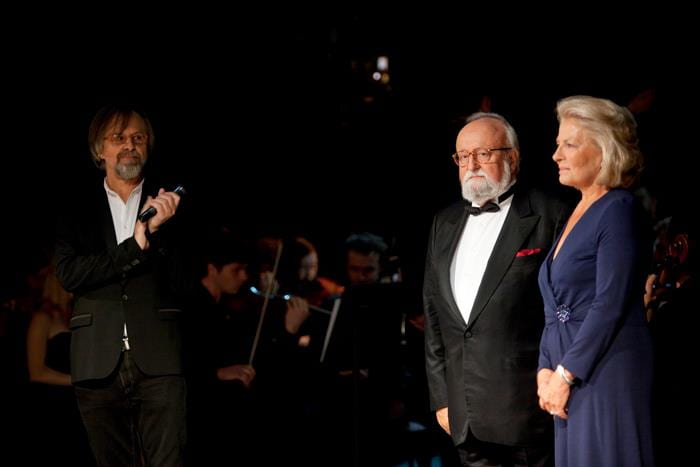
The Glocal Hero Award is the most important prize of the Transatlantyk Festival, and this year, it was presented to Elżbieta and Krzysztof Penderecki, honoring the couple as a creative team with many years of experience in the field of actively promoting high culture both locally and globally. This award is granted to people of outstanding personalities, whose activities shape the face of the modern world. In 2011, the Glocal Hero Award went to the Danish researcher, Bjørn Lomborg, who was called by The Guardian “one of the 50 people who could save the planet.”
After long and intensive debates, the 2012 jury is pleased to announce 6 laureates of the Instant Composition Contest: Jacek Szwaj (1st Prize – Transatlantyk Instant Composer 2012), Marta Grzywacz (2nd Prize), Jacek Obstaczyk (3rd Prize), as well as Noam Sivan, Nikola Kołodziejczyk and Jarosław Praszczałek (Honorable Mention). In this competition, having watched a short film, the participants were asked to compose a live solo piano piece to the material. Their compositions were judged by an international jury composed of, among others: jazz pianist Leszek Możdżer, composer and Director of the Sundance Film Music Program Peter Golub, and composers Rolfe Kent and Vasco Hexel.
Also during the Closing Gala, Swedish composer Daniel Beijbom was awarded the Young Composer Award (1st Prize – Transatlantyk Young Composer 2012). Jan Glembotzki won 2nd Prize and Paweł Pudło won 3rd Prize. The Jury, led by Mark Isham, decided also to award an Honorable Mention to L.A.-based composer, Mikołaj Stroiński.
[Sources: transatlantyk.org and transatlantyk.org; Photo: Tomasz Wiech via facebook.com]
Festivals
Wratislavia Cantans 2012
From September 1-9, the 47th edition of one of the most important and prestigious festivals in Europe—the International ‘Wratislavia Cantans’ Festival––was held in the city of Wrocław. During that time, the most extraordinary architectural gems of Poland’s Lower Silesia region resounded with oratorio, symphonic, vocal and vocal-instrumental masterpieces. The vast majority of works presented during the festival explore the Holy Week theme of the passion and death of Christ.
Initiated in 1965 by conductor Andrzej Markowski, the Festival presents music which varies from medieval to contemporary music. Markowski’s subtitle for the festival since 1995 –“Music and beautiful art” –is currently being carried out by General Director Andrzej Kosendiak and Artistic Director Paul McCreesh.
According to Andrzej Kosendiak:
Sacrum has been an immanent part of music since prehistoric times. Art has always referred to both spheres – sacrum and what is bound up with the human presence, the earthly life. This year’s Wratislavia Cantans is unambiguously and transparently dedicated to the subject matter of the Holy Week…. I always feel Wratislavia is a kind of spectacle, a whole. It is not just a series of concerts, as it happens in a regular concert season. The sequence of works in the programme is logical, creating an opportunity to celebrate music. It is my dream to see each consecutive act of this spectacle as more and more involving, giving us more and more opportunities to confront different works of music.
The programs the 2012 Wratislavia Cantans Festival include such giants of world religious music as: the Passions according to St. John and St. Matthew by Johann Sebastian Bach; Stabat Mater Op. 58 by Antonín Leopold Dvořák; La Passione di Gesu Cristo [Passions of Christ] by Antonio Caldara, The Tears of St. Paul by Orlande de Lassus as well as the Seven Last Words of Christ at the Cross by Franz Joseph Haydn. One of the centerpieces of the Festival was the performance of Paweł Łukaszewski’s Via Crucis (2000)—a seven-part work for orchestra, choir and soloist, written as 60-minute rondo with refrains and couplets. The Festival’s repertoire also included chamber works of Bach, Palestrina motets and works based on religious themes by Liszt.
As a landmark of music, these compositions were heard through the interpretation of the masters of historical performance, including: Taverner Consort with Andrew Parrott, La Risonanza with Fabio Bonizzioni, Gabrieli Players and Brecon Baroque with violinist Rachel Podger (pictured above). Also performing in Wrocław: Trevor Pinnock – harpsichord, Jonathan Manson – viola da gamba, and Isabelle Faust – violin. The artists of the Wrocław Baroque Orchestra, Wrocław Philharmonic Orchestra & Choir, with Stephen Layton as conductor, and the National Polish Radio Symphony Orchestra, under the baton of Alexander Liebreich, represented Poland.
[Sources: article by Aleksandra Masłowska at meakultura.pl, wratislaviacantans.pl, efa-aef.eu; Photo: polskieradio.pl]
Sacrum Profanum
 Held in Kraków each fall, Sacrum Profanum is a festival of music from the XX century that has obtained the status of one of the most interesting music events in Europe and has garnered the most serious Polish awards and distinctions. Its rank is built upon the participation of the most valued groups performing modern music today, including: Ensemble Modern, Ensemble Intercontemporain, Klangforum Wien, Theatre of Voices, Asko | Schönberg, London Sinfonietta, musikFabrik. Sacrum Profanum also combines classical music with other trends, and thus the presence of leading performers of Polish jazz at the festival (Tomasz Stańko, Leszek Możdżer), and stars like Aphex Twin and the group Kraftwerk.
Held in Kraków each fall, Sacrum Profanum is a festival of music from the XX century that has obtained the status of one of the most interesting music events in Europe and has garnered the most serious Polish awards and distinctions. Its rank is built upon the participation of the most valued groups performing modern music today, including: Ensemble Modern, Ensemble Intercontemporain, Klangforum Wien, Theatre of Voices, Asko | Schönberg, London Sinfonietta, musikFabrik. Sacrum Profanum also combines classical music with other trends, and thus the presence of leading performers of Polish jazz at the festival (Tomasz Stańko, Leszek Możdżer), and stars like Aphex Twin and the group Kraftwerk.
The arrangement of the many directions and richness of sound emanating from XX century music is the thematic direction of the Festival – every year the program concentrates on the work of composers from a different country. For the needs of Sacrum Profanum concerts, places of diverse character are adapted – from the hall of the Krakow Philharmonic, to Oscar Schindler’s Factory and the Museum of City Engineering, as well as the factory halls at the steelworks of ArcelorMittal Poland.
See the News section above for details about the premieres and performers at this year’s Festival.
[Source: sacrumprofanum.com]
Stańko + Solidarity Of Arts
 Legendary Polish jazz trumpeter Tomasz Stańko has been a star on the international jazz scene since in the mid-1960s. His talent and relentless innovation have kept him at the forefront of the international jazz stage more than five decades later. He celebrates his 70th birthday in 2012 and, to prove he hasn’t slowed down a bit, he’s among the main acts at the 2012 Solidarity of Arts Festival (August 8 – September 2)—the largest open-air jazz show in Poland and a major event dedicated to the idea of social and artistic freedom in the legendary city of Gdańsk.
Legendary Polish jazz trumpeter Tomasz Stańko has been a star on the international jazz scene since in the mid-1960s. His talent and relentless innovation have kept him at the forefront of the international jazz stage more than five decades later. He celebrates his 70th birthday in 2012 and, to prove he hasn’t slowed down a bit, he’s among the main acts at the 2012 Solidarity of Arts Festival (August 8 – September 2)—the largest open-air jazz show in Poland and a major event dedicated to the idea of social and artistic freedom in the legendary city of Gdańsk.
As a part of his Stańko+ program, the works of composer Krzysztof Komeda takes center stage. The program includes performances by international jazz and pop stars scenes including: the New York Quartet, Stanisław Sojka (Poland), Die Norddeutscher Rundfunk Bigband (Germany), Richard Bona (Cameroon) and Mandekan Cubano, as well as Brazilian guitarist Nelson Veras and percussionist Marilyn Mazur, of Polish and African-American descent. The highlight of the program will be American trumpeter and music-producer Quincy Jones in his first time performing in Poland.
[Sources: culture.pl, solidarityofarts.pl]
50th Moniuszko Festival In Kudowa-Zdrj
The 50th anniversary edition of the Moniuszko Festival was held in Kudowa-Zdrój, Poland on August 20-25, 2012. Dedicated to the music of Stanisław Moniuszko—the father of Polish nathional opera—this year’s Festival was organized around the theme of Moniuszko odczarowany, or “disenchanted” Moniuszko.
 Polish mezzo-soprano Małgorzata Walewska (right) and soloists of the Opera Lwowska (Ukraine) performed with the Philharmonic Orchestra of Hradec Kralove (Czech Republic) under the baton of Andreas Sebastian Weiser during the inauguration concert. Wanda Ziembicka led discussions with Stefania Toczyska and Maria Foltyn. The highlight of the Festival was a performance of Moniuszko’s opera Straszny dwór [Hunted Manor] by the Kraków Opera.
Polish mezzo-soprano Małgorzata Walewska (right) and soloists of the Opera Lwowska (Ukraine) performed with the Philharmonic Orchestra of Hradec Kralove (Czech Republic) under the baton of Andreas Sebastian Weiser during the inauguration concert. Wanda Ziembicka led discussions with Stefania Toczyska and Maria Foltyn. The highlight of the Festival was a performance of Moniuszko’s opera Straszny dwór [Hunted Manor] by the Kraków Opera.
Also during this special anniversary year, the first annual Andrzej Hiolski International Vocal Competition was held during the Festival, co-organized by the Karol Lipiński Music Academy in Wrocław. Accompanied by the Sudecka Philharmonic Orchestra of Wałbrzychwith conductor Warcisław Kunc, Competition winners performed at the Final Concert at the Kudowa-Zdrój Theatre.
A search for new and inspirational ways to present the works of Stanisław Moniuszko is a tradition for the organizers of the Festival. This year, a concert entitled Moniuszko po klezmersku was organized at the Teatr pod Blachą, featuring Polish performers of Jewish music Magda Brudzińska and the Klezzmates ensemble. In addition, Danuta Błażejczyk, Janusz Szrom and Lesław Żurek performed the theatrical spectacle Moniuszkowo, directed by Zbigniew Lesien.
The festival also included a musicological discussion of Stanisław Moniuszko i jego epoka[Stanisław Moniuszkoand his era], featuring prominent scholars and co-organized by the Musicology Department of Wrocław University, as well as the outdoor concerts of the Korowód Moniuszkowski [Moniuszko Parade], bringing together artists, civil leaders, tourists and local citizens.
[Source: polmic.pl]
Music In Old Krakow
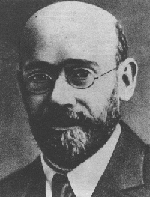 From August 15-31, the 37th edition of one of the oldest international festivals in Poland— Music in Old Krakow—was held in Kraków. One of the most significant events was the world premiere of the Postcards from Beyond, composed by Alexander Balanescu of Romania, in commemoration of the 70th anniversary of the death of Janusz Korczak (left) that is celebrated thoughout Poland this year.
From August 15-31, the 37th edition of one of the oldest international festivals in Poland— Music in Old Krakow—was held in Kraków. One of the most significant events was the world premiere of the Postcards from Beyond, composed by Alexander Balanescu of Romania, in commemoration of the 70th anniversary of the death of Janusz Korczak (left) that is celebrated thoughout Poland this year.
The Festival included 19 concerts with performances by soloists, chamber ensembles, as well as orchestras and choirs from Poland, Great Britain, Romania, China, Russia, Spain, South Korea, Italy, Ukraine and Norway.
During the two weeks of the festival, concerts were held every other night at cultural institutions and sacred places throughout the city. On August 18, a concert program of organ and a capella vocal works once performed by the Rorantyści—musicians operating in the Wawel Cathedral from 1543 to about 1794—was held in Kraków’s Pauline Basilica. On August 21, ancient Russian Orthodox melodies were performed at the Dominican Basilica by the Sirin ensemble, directed by Andrey Kotov.
A concert featuring award-winning works from the 2011 Tadeusz Ochlewski Composition Competition by Ewa Fabiańska (above left) and Justyna Kowalska-Lasoń (above right), as well as works by Grażyna Bacewicz and Wojciech Kilar, was performed in the Temple Synagogue on August 23. Also in the Temple Synagogue, the world premiere of Postcards from Beyond composed by Alexander Balanescu was presented by the Balanescu Quartet and the Polish Radio Choir on August 27.
The Music in Old Kraków Festival ended on August 27 with a concert by the Orchestra and Choir of the Kraków Philharmonic, including works by Karol Szymanowski and Igor Stravinsky, held in the Church of St. Peter and St. Paul.
[Sources: beethoven.org.pl, mwsk.pl, sirin.ru, polmic.pl]
Sacrum Non Profanum – Tresacz, 2012
 The 8th International Festival Sacrum Non Profanum in Trzęsacz, Poland opened on August 13. This year’s Festival was held under the theme: Music of our time – Henryk Mikołaj Górecki. Sacrum Non Profanum is a project aimed at popularizing classical music of past and present composers. From August 13-18 the popular tourist town of Trzęsacz became the cultural center of the Pomeranian region, attracting music lovers from home and abroad to concerts by prominent artists and young musicians.
The 8th International Festival Sacrum Non Profanum in Trzęsacz, Poland opened on August 13. This year’s Festival was held under the theme: Music of our time – Henryk Mikołaj Górecki. Sacrum Non Profanum is a project aimed at popularizing classical music of past and present composers. From August 13-18 the popular tourist town of Trzęsacz became the cultural center of the Pomeranian region, attracting music lovers from home and abroad to concerts by prominent artists and young musicians.
[Sources: pwm.com.pl, rewal.pl]
Silesian ‘August Of Talents’ 2012
 From August 20-30, “Silesia”—the Institution for the Promotion and Propagation of Silesian Music—presented the “August of Talents” National Promotional Festival. The Festival was first organized in 2005 in commemoration of the 140th anniversary of the formation of the City of Katowice, to which it was dedicated. As of 2005, the Festival has been held annually. The Festival presents a wide variety of talented young artists in Katowice , providing them with the opportunity to discover their true artistic potential and explore individual interpretations of concert repertoire, often prior to the struggles of competition.
From August 20-30, “Silesia”—the Institution for the Promotion and Propagation of Silesian Music—presented the “August of Talents” National Promotional Festival. The Festival was first organized in 2005 in commemoration of the 140th anniversary of the formation of the City of Katowice, to which it was dedicated. As of 2005, the Festival has been held annually. The Festival presents a wide variety of talented young artists in Katowice , providing them with the opportunity to discover their true artistic potential and explore individual interpretations of concert repertoire, often prior to the struggles of competition.
As a part of their “Before the Big Competition” programs, Silesia invites Polish competitors in the Fryderyk Chopin International Pianist Competition, the Henryk Wieniawski International Violin Competition, “Silesian Guitar Autumn,” Summer Music Academy in Krakow as well as many talented international artists to participate in “August of Talents.”
Audience members attending Festival concerts are given the unique opportunity to meet talented young performers who are just approaching the musical stage, as well as a chance to enjoy a few nights of classical music during the month of August. The August of Talents is often a main attraction to fans of classical music. Titles of concerts such as “The beauty of opera music,” “Music – my love,” “Technique and expression,” “Concert Accordions” and “Guitar Fantasy” speak for themselves.
[Source: polmic.pl]
Performances
Berenika On Tour
Born in Warsaw, Berenika Zakrzewski is a Polish-Canadian-American pianist who has just completed her Asia Pacific concert tour. She performed in 7 countries—Australia, Hong Kong, Thailand, Indonesia, South Korea, Japan and India. The tour included solo recitals (Chopin, Schubert, Debussy and Philip Glass), performances with orchestras (Beethovan’s Concerto No. 5 “Emperor” with the Hong Kong Chamber Symphony and Shostakovich’s Concerto No. 2 with the Siam Sinfonietta in Bangkok), master classes at music schools (Payap University Chiang Mai, Delhi School of Music and Jakarta School of Music) as well as adjudicating music competitions (Kolkata). Berenika also performed at a new venue—the Blue Frog jazz night club in Mumbai, where her Chopin mazurkas were warmly received. In Tokyo, after the Yamaha recital, Berenika gave a presentation for Japanese business people and Japan’s Harvard and Oxford Clubs on the role of cultural institutions in the process of planning urban development.
 Watch her performance with the Hong Kong Chamber Symphony at www.youtube.com and hear an interview with Berenika and conductor Zun-Hin Woo at programme.rthk.org.hk. More reviews of the tour are available at www.indianexpress.com, www.thedailystar.net, entertainment.bangladeshinfo.com and www.telegraphindia.com, as well as an interview at www.thestatesman.net.
Watch her performance with the Hong Kong Chamber Symphony at www.youtube.com and hear an interview with Berenika and conductor Zun-Hin Woo at programme.rthk.org.hk. More reviews of the tour are available at www.indianexpress.com, www.thedailystar.net, entertainment.bangladeshinfo.com and www.telegraphindia.com, as well as an interview at www.thestatesman.net.
Berenika has returned to her duties as an executive and artistic director of the Dana Point Symphony Orchestra in California. In September, this year, she will start her work at the Kennedy Center in Washington, DC, as a fellow at DeVos Institute of Arts Management.
[Source: Dr. Wojciech T. Zakrzewski]
Wieniawski In Brazil
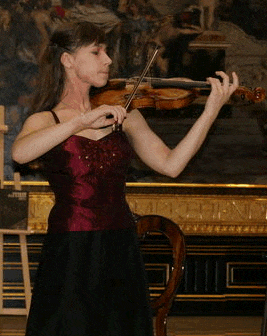 On August 5 violinist Aleksandra Kuls performed Henryk Wieniawski’s Violin Concerto No. 2 with the Orquesta Sinfônica do Paraná in Curitiba, Brazil. The concert was held in Teatro Guiara and the orchestra was led by maestro Antoni Wit.
On August 5 violinist Aleksandra Kuls performed Henryk Wieniawski’s Violin Concerto No. 2 with the Orquesta Sinfônica do Paraná in Curitiba, Brazil. The concert was held in Teatro Guiara and the orchestra was led by maestro Antoni Wit.
[Source: beethoven.org.pl]
King Roger At Santa Fe
A review by Dr. Bartosz Chmielowski
The Santa Fe Opera, one of the leading opera companies in the United States, is famous not only for new productions of the well-known operas, but also for taking risks of introducing new operas to the American audience. The Santa Fe Opera must be applauded for its efforts since opera lovers, in times when other major opera theaters prefer to invest in more popular repertoire, find it more and more difficult to hear new or rare operas. Polish operas have been previously seen in Santa Fe when the opera company produced two operas by Krzysztof Penderecki, The Devils of Loudun in 1969 and The Black Mask in 1988.
The Santa Fe Opera frequently serves as a springboard for emerging singing talents; they regularly offer apprenticeship training, master classes and leading roles to promising artists in their productions. In 2004, now world famous Polish baritone Mariusz Kwiecieńmesmerized the Santa Fe audience by singing the title role in Don Giovanni by Mozart. This role started a relationship between the Santa Fe Opera and Mariusz Kwiecień that led to a new production of Karol Szymanowski’s King Roger this season with Kwiecień in the lead role as King Roger, a 12th century king of Sicily.
King Roger was premiered in Warsaw in 1926 and remains a masterpiece of the 20th century music, but it has not been performed widely outside Poland. In the United States it was previously performed in a concert version in 1981, and as a full opera by the Long Beach Opera in 1988.
The Santa Fe production of the opera was directed by Stephen Wadsworth, an accomplished opera director, who is famous for his stagings of the “Ring” cycle is Seattle and Boris Godunov and Iphigenie en Tauride for the Metropolitan Opera in New York. For King Roger in Santa Fe, the director decided to simplify the stage sets. King Roger has three acts and each act takes places in a different location – a Byzantine chapel, the king’s palace, and finally a Greek amphitheater. The production is performed without intermission and the locations are rather suggested by the stage sets: large screens in the back of the stage symbolize the places; the stage is filled with chairs and the king’s throne in the front of the stage. This simplified setting stimulates the audience to use their imagination; it prepares listeners to concentrate of the emotional turmoil of the main character rather than on the plot.
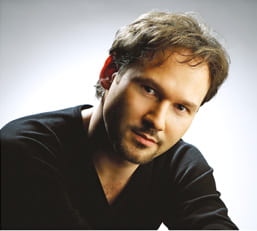 King Roger does not have a typical plot, and therefore many opera goers who seek a traditional story might find this piece impenetrable. King Roger takes us through the emotional struggles of a strong Norman king who would follow Apollonian values of responsibility, reason and order, but is then tempted by the Dionysian view of the world (lust, indulgence) presented by a mysterious character, the Shepherd. In addition, King Roger’s frustrations are magnified by the fact that not only his people but also his wife Roxana start following the Shepherd’s teaching. The message of the opera can move the audience only when performed by skilled singers. Mariusz Kwiecień (below), as Roger, was fabulous. He was able to portray the inner turmoil of the character through his singing and acting. Similarly, American soprano Erin Morley (Roxana) was able to enchant the audience with thrillingly beautiful lyricism of her singing, especially in the famous Roxana’s Song of Act II. William Burden who played the other most important character, the Shepherd, sang radiantly but his performance lacked sensuality. The performance of the three main characters was enhanced by a very powerful chorus and astonishing orchestra led by Evan Rogister. The performance was a success and everyone could see it in the reaction of the audience: people were astounded, moved and left asking questions on the deeper meanings of this piece.
King Roger does not have a typical plot, and therefore many opera goers who seek a traditional story might find this piece impenetrable. King Roger takes us through the emotional struggles of a strong Norman king who would follow Apollonian values of responsibility, reason and order, but is then tempted by the Dionysian view of the world (lust, indulgence) presented by a mysterious character, the Shepherd. In addition, King Roger’s frustrations are magnified by the fact that not only his people but also his wife Roxana start following the Shepherd’s teaching. The message of the opera can move the audience only when performed by skilled singers. Mariusz Kwiecień (below), as Roger, was fabulous. He was able to portray the inner turmoil of the character through his singing and acting. Similarly, American soprano Erin Morley (Roxana) was able to enchant the audience with thrillingly beautiful lyricism of her singing, especially in the famous Roxana’s Song of Act II. William Burden who played the other most important character, the Shepherd, sang radiantly but his performance lacked sensuality. The performance of the three main characters was enhanced by a very powerful chorus and astonishing orchestra led by Evan Rogister. The performance was a success and everyone could see it in the reaction of the audience: people were astounded, moved and left asking questions on the deeper meanings of this piece.
King Roger deserves a more permanent presence in opera houses around the world. Hopefully this production by the Santa Fe Opera will ignite interest among other houses. In discussions after the performance, Mariusz Kwiecień stated King Roger would be also seen on the stages of the opera in Bilbao and at Covent Garden in London. It is so important that American opera artists such as the director Stephen Wadsworth and the conductor Evan Rogister find this piece exciting. Mr. Rogister, again in the discussions after the performance, expressed his gratitude to the Polish Music Center and its director, Marek Zebrowski, for help during his trip to Poland. Mr. Rogister was able to meet Teresa Chylinska, the world renowned specialist on Karol Szymanowski, and he received a copy of the manuscript of King Roger.
Dr. Bartosz Chmielowski is a Hematology and Oncology specialist at UCLA and an avid opera enthusiast, as well as a dedicated supporter of the Polish Music Center.
Discography
SZYMANOWSKI: THE POSSIBILITIES ARE ENDLESS…
A CD/LP Discography compiled by Gary Fitelberg
This is a compendium of recordings made of music by the prominent Polish composer Karol Szymanowski (1882-1937), including labels major and minor, artists and musicians known and unknown, ensembles and groups large and small. One thing is crystal clear. All share a love in preserving Szymanowski’s musical legacy forever.
 The long list of labels featuring Szymanowski recordings, many of which are unfortunately now out of print or otherwise unavailable, includes: ABC Classics, Acte Prealable (AP0182), ANKH, Aleph, Alba (ABCD 296, ABCD 331 and ABCD 337), Arabesque Records (AR Z6807), Artek (Artek CD11), ARS Musici, Arte Nova Classics, Athene, BeArTon (CDB031 and CDB035), BIS (BIS-CD-1137), BR Klassik (CD 900107, re-release), Brana Records (BR0030), Brilliant Classics, Cavi More, CD Accord (12 CDs in catalog), Cedille Records, Centaur, Chandos, Channel Classics, Deutche Grammophone (CD 4790068, CD 4775903, CD 4779548), Decca (CD 4758585), Delos (DE 1002), Denon, Divine Art (CD 21400), Divox (CDX-28902), DUX (too many to count…), EMI Classics (23 CDs in catalog), Etcetera (KTC 1090), FFV, Hänssler Classic SCM (2 CDs in catalog), Harmonia Mundi (7 CDs in catalog), Helios (see Hyperion), Hyperion (5 CDs in catalog), Integral Classics, Koch Schwann, Marco Polo (see NAXOS), MDG (CD 603 1555-2), Meridian Records UK (CDE 84323), NAXOS (numerous), Nimbus (NI1750), OEHMS, Olympia, Opening Day, ORFEO (CD 390951B, CD 480981A), Pearl, Pentatone Classics (PTC 5186353), Phoenix Classics, Polymnie, Polskie Nagrania (PNCD 272), Profil/ Edition Günter Hänssler (PH 04035), Scandavian Classics, Sony Classical (Sony 88697439992), Telarc (CD 80567-25, CD 80362-25), Testament, Thorofon, Universal Music / Virgin Classics (see EMI), and VMS Musical Treasures, but to name just a few. These labels represent many nations as sources for performances of Szymanowski’s music—a virtual who’s who of international and worldwide record companies.
The long list of labels featuring Szymanowski recordings, many of which are unfortunately now out of print or otherwise unavailable, includes: ABC Classics, Acte Prealable (AP0182), ANKH, Aleph, Alba (ABCD 296, ABCD 331 and ABCD 337), Arabesque Records (AR Z6807), Artek (Artek CD11), ARS Musici, Arte Nova Classics, Athene, BeArTon (CDB031 and CDB035), BIS (BIS-CD-1137), BR Klassik (CD 900107, re-release), Brana Records (BR0030), Brilliant Classics, Cavi More, CD Accord (12 CDs in catalog), Cedille Records, Centaur, Chandos, Channel Classics, Deutche Grammophone (CD 4790068, CD 4775903, CD 4779548), Decca (CD 4758585), Delos (DE 1002), Denon, Divine Art (CD 21400), Divox (CDX-28902), DUX (too many to count…), EMI Classics (23 CDs in catalog), Etcetera (KTC 1090), FFV, Hänssler Classic SCM (2 CDs in catalog), Harmonia Mundi (7 CDs in catalog), Helios (see Hyperion), Hyperion (5 CDs in catalog), Integral Classics, Koch Schwann, Marco Polo (see NAXOS), MDG (CD 603 1555-2), Meridian Records UK (CDE 84323), NAXOS (numerous), Nimbus (NI1750), OEHMS, Olympia, Opening Day, ORFEO (CD 390951B, CD 480981A), Pearl, Pentatone Classics (PTC 5186353), Phoenix Classics, Polymnie, Polskie Nagrania (PNCD 272), Profil/ Edition Günter Hänssler (PH 04035), Scandavian Classics, Sony Classical (Sony 88697439992), Telarc (CD 80567-25, CD 80362-25), Testament, Thorofon, Universal Music / Virgin Classics (see EMI), and VMS Musical Treasures, but to name just a few. These labels represent many nations as sources for performances of Szymanowski’s music—a virtual who’s who of international and worldwide record companies.
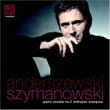 Artists and musicians featured on these recordings include Felicja Blumenthal, Leon Botstein, Pierre Boulez, Joanna Domanska, Antal Dorati, Charles Dutoit, Dietrich Fischer-Dieskau, Josh Groban, Jascha Heifitz, Maris Janssons, Leonid Kagan, Evgeny Kissin, Witold Małcużyński, Yehudi Menuhin, Midori, Nathan Milstein, David Oistrakh, Sir Simon Rattle, Sviatoslav Richter, Artur Rubenstein, Karol Stryja, Antoni Wit and many more so numerous it is impossible to list them all. Sound familiar? Also on the list are Piotr Anderszewski (right), Alena Baeva, Krzysztof Bąkowski, Volodja Balzalorsky, Matthew Bengston, Beata Bilińska, Kaoru Bingham, Easley Blackwood, Rafał Blechacz, Jan Krzysztof Broja, Kazimierz Brzozowski, Chee-Yun, Saori Chiba, Aldo Ciccolini, Raymond Clarke, Kaja Danczowska, Justyna Danczowska, Bogusław Dawidow, Nicolas Dautricourt, Marek Drewnowski, Akira Eguchi, Monique Elias, Janina Fialkowska, Vladimir Fedoseyev, Natalia Gous, Paul Gulda, Detlef Hahn, Marc-Andre Hamelin, Raaf Hekkema, Ulf Hoelscher, Alina Ibragimova, Eri Iwamoto, Piotr Jablonski, Jakub Jakowicz, Oskar Jezior, Martin Jones, Chantal Juillet, Katarina Karneus, Ilya Kaler, Anna Kijanowska, Zofia Kilowicz, Corinne Kloska, Jennifer Koh, Anu Komsi, Konstanty Andrzej Kulka, Mariusz Kwiecień, Ewa Kupiec, Roman Lasocki, Adrian Leaper, Victor Ledbetter, Dennis Lee, Sinae Lee, Marta Magdalena Lelek, David Leszczynski, Robert Morawski, Ewa Maczyk, Marek Maczyk, Joanna Madroszkiewicz, Reinild Mees, Dorota Miskiewicz, Graf Mourja, Robert Morawski, Patrycja Piekutowska, Piotr Pawner, Jonathon Plowright, Roland Pontinen, Martin Roscoe, Carol Rosenberger, Benjamin Schmid, Robert Shaw, Wolfgang Shneiderhan, Gregory Sioles, Vincent Skrowonski, Florian Skulski, Evgeny Starodubtsev, Arabella Steinbacher, Akiko Suwanai, Elzbieta Szmytka, Michał Szymanowski (this surname sounds very familiar), Christian Tetzlaf, Cédric Tiberghien, Richard Tognetti, Sławomir Tomasik, Frank van de Laar, Frédéric Vaysse-Knitter, Anu Vehvilainen, Arielle Vernade, Laurent Wagschal, Malgorzeta Walewska, Elzbieta Weidner-Zajac, Emily White, Mescal Wilson, Mity Włodzimierz Nahorny, Joanna Wronko, Barbara Zagor, Robert Zimansky, Krystian Zimerman and Frank Peter Zimmerman.
Artists and musicians featured on these recordings include Felicja Blumenthal, Leon Botstein, Pierre Boulez, Joanna Domanska, Antal Dorati, Charles Dutoit, Dietrich Fischer-Dieskau, Josh Groban, Jascha Heifitz, Maris Janssons, Leonid Kagan, Evgeny Kissin, Witold Małcużyński, Yehudi Menuhin, Midori, Nathan Milstein, David Oistrakh, Sir Simon Rattle, Sviatoslav Richter, Artur Rubenstein, Karol Stryja, Antoni Wit and many more so numerous it is impossible to list them all. Sound familiar? Also on the list are Piotr Anderszewski (right), Alena Baeva, Krzysztof Bąkowski, Volodja Balzalorsky, Matthew Bengston, Beata Bilińska, Kaoru Bingham, Easley Blackwood, Rafał Blechacz, Jan Krzysztof Broja, Kazimierz Brzozowski, Chee-Yun, Saori Chiba, Aldo Ciccolini, Raymond Clarke, Kaja Danczowska, Justyna Danczowska, Bogusław Dawidow, Nicolas Dautricourt, Marek Drewnowski, Akira Eguchi, Monique Elias, Janina Fialkowska, Vladimir Fedoseyev, Natalia Gous, Paul Gulda, Detlef Hahn, Marc-Andre Hamelin, Raaf Hekkema, Ulf Hoelscher, Alina Ibragimova, Eri Iwamoto, Piotr Jablonski, Jakub Jakowicz, Oskar Jezior, Martin Jones, Chantal Juillet, Katarina Karneus, Ilya Kaler, Anna Kijanowska, Zofia Kilowicz, Corinne Kloska, Jennifer Koh, Anu Komsi, Konstanty Andrzej Kulka, Mariusz Kwiecień, Ewa Kupiec, Roman Lasocki, Adrian Leaper, Victor Ledbetter, Dennis Lee, Sinae Lee, Marta Magdalena Lelek, David Leszczynski, Robert Morawski, Ewa Maczyk, Marek Maczyk, Joanna Madroszkiewicz, Reinild Mees, Dorota Miskiewicz, Graf Mourja, Robert Morawski, Patrycja Piekutowska, Piotr Pawner, Jonathon Plowright, Roland Pontinen, Martin Roscoe, Carol Rosenberger, Benjamin Schmid, Robert Shaw, Wolfgang Shneiderhan, Gregory Sioles, Vincent Skrowonski, Florian Skulski, Evgeny Starodubtsev, Arabella Steinbacher, Akiko Suwanai, Elzbieta Szmytka, Michał Szymanowski (this surname sounds very familiar), Christian Tetzlaf, Cédric Tiberghien, Richard Tognetti, Sławomir Tomasik, Frank van de Laar, Frédéric Vaysse-Knitter, Anu Vehvilainen, Arielle Vernade, Laurent Wagschal, Malgorzeta Walewska, Elzbieta Weidner-Zajac, Emily White, Mescal Wilson, Mity Włodzimierz Nahorny, Joanna Wronko, Barbara Zagor, Robert Zimansky, Krystian Zimerman and Frank Peter Zimmerman.
And take note of some of the ensembles and orchestras that have Szymanowski in their recording repertoire: Amati Quartet, Atlanta Symphony, Australian Chamber Orchestra, Bacewicz Quartet, Braslavsky-Findlay Duo, Camerata Quartet, Carmina Quartet, City of Birmingham Orchestra, Schoenberg Quartet, Silesian String Quartet, Łódź Philharmonic Symphony, London Philharmonic, Maggini Quartet, Penderecki Quartet, Polish National Radio Symphony Orchestra (NOSPR), Royal Quartet, Silesian Quartet, Sinfonia Varsovia, Szymanowski Quartet, Janacek Philharmonic Orchestra, Tschaikovsky Symphony Orchestra of Moscow Radio, Varsovia Quartet, Wilanów Quartet, Warsaw Philharmonic Orchestra and Wiener Philharmoniker, among others.
Syzmanowski has inspired international labels and musicians, worldwide. Some of the nations represented are Austria, Australia, Canada, Czech Republic, CIS, Denmark, Finland, France, Germany, Italy, Japan, Korea, Latvia, Netherlands, Scotland, Sweden, Switzerland, UK and USA as well as, of course, Poland.
I will attempt to follow in the footsteps of Grzegorz Fitelberg, who conducted at least one Szymanowski work during each of his international concerts, by offering at least one CD Review/Personality Profile in the coming months.
Gary Fitelberg is a musicologist, music critic and historian specializing in the Young Poland composers Grzegorz Fitelberg, Mieczysław Karłowicz, Ludomir Różycki, Apolinary Szeluto and Karol Szymanowski.
New on DUX
 Music of Laks, Slowinski, Pstrokonska-Nawratil
Music of Laks, Slowinski, Pstrokonska-Nawratil
Łukasz Długosz – flute, Warsaw Philharmonic Chamber Orchestra – cond. Krzysztof Słowiński
DUX 0737
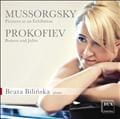 Modest Mussorgsky Pictures at an Exhibition Sergey Prokofiev Romeo and Juliet: Ten Pieces for Piano, Op. 75
Modest Mussorgsky Pictures at an Exhibition Sergey Prokofiev Romeo and Juliet: Ten Pieces for Piano, Op. 75
Beata Bilińska – piano
DUX 0858
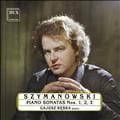 Szymanowski – Piano Sonatas
Szymanowski – Piano Sonatas
Gajusz Kęska – piano
DUX 0893-4
Anniversaries
Born This Month
- 1 September 1900 – Kazimierz WIŁKOMIRSKI, cellist, conductor, teacher (died in 1990)
- 5 September 1924 – Krystyna MOSZUMAŃSKA-NAZAR, composer
- 5 September 1938 – Piotr LACHERT, pianist, composer, pedagogue
- 6 September 1916 – Tadeusz DOBRZAŃSKI, composer and conductor
- 7 September 1943 – Elzbieta STEFAŃSKA, harpsichordist
- 9 September 1921 – Andrzej DOBROWOLSKI, composer (died in 1989)
- 9 September 1923 – Andrzej BACHLEDA, tenor
- 13 September 1896 – Tadeusz SZELIGOWSKI (died 10 January 1963), composer
- 14 September 1937 – Jan ASTRIAB, composer
- 14 September 1914 – Michał SPISAK, composer (died 29 January 1965, Paris)
- 16 September 1895 – Karol RATHAUS, composer, pianist (died 21 November 1954, New York)
- 16 September 1891 – Czesław MAREK, composer, pianist
- 18 September 1919 – Edward BURY, composer and theory teacher
- 18 September 1928 – Adam WALACIŃSKI, composer and music critic
- 18 September 1883 – Ludomir RÓŻYCKI (died 1 January 1953), composer
- 19 September 1938 – Zygmunt KRAUZE, composer and pianist
- 22 September 1940 – Edward BOGUSŁAWSKI, composer
- 23 September 1912 – Irena PFEIFFER, composer, conductor.
- 24 September 1914 – Andrzej PANUFNIK (died 27 October 1991)
- 30 September 1942 – Andrzej DUTKIEWICZ, pianist and composer
- 30 September 1947 – Jan OLESZKOWICZ, composer
Died This Month
- 13 September 1977 – Leopold STOKOWSKI (born 18 April 1882), conductor and composer
- 15 September 1895 – Jan KLECZYŃSKI (b. 8 June 1857), pianist and music critic
- 15 September 1944 – Bronislaw WOLFSTAHL, composer, pianist, conductor (b. 22 July 1883)
- 18 September 1857 – Karol KURPIŃSKI (b. 6 March 1785), composer and conductor
- 26 September 1944 – Seweryn BARBAG (b. 4 September 1891), musicologist.
- 29 September 1954 – Alfred GRADSTEIN (born 30 October 1904), composer, and social activist
- 27 September 1943 – Waclaw GIEBUROWSKI (born 6 February 1878), priest, choral conductor and musicologist
- 28 September 1939 – Halina SZMOLC-FITELBERG (born 25 December 1892), dancer (Diaghilev ensemble, Grand Theatre)
- 28 September 1956 – Walerian BIERDAJEW, conductor and teacher (b. 7 March 1885)
- 29 September 1861 – Tekla BADARZEWSKA-BARANOWSKA (b. 1834), composer of “The Maiden’s Prayer”


